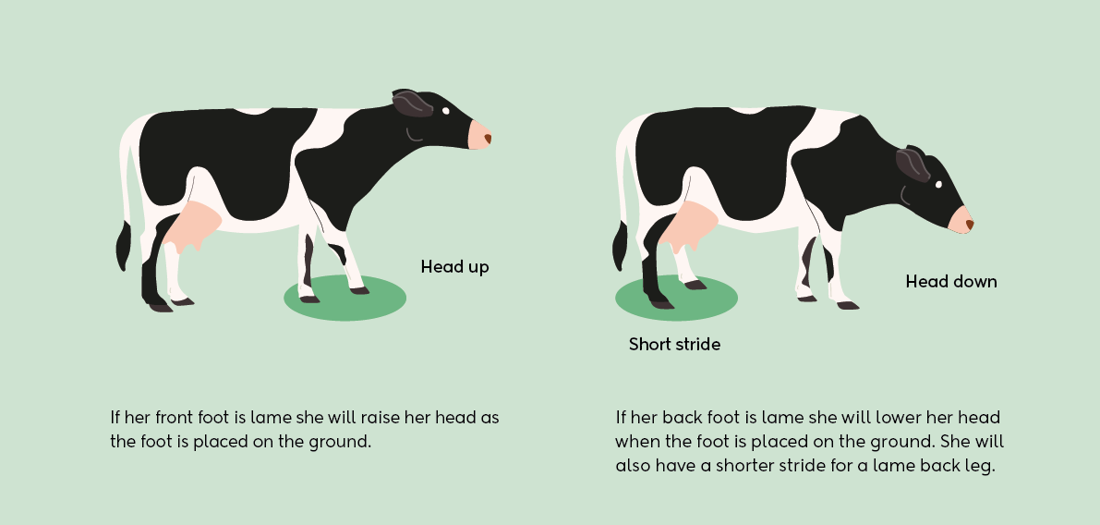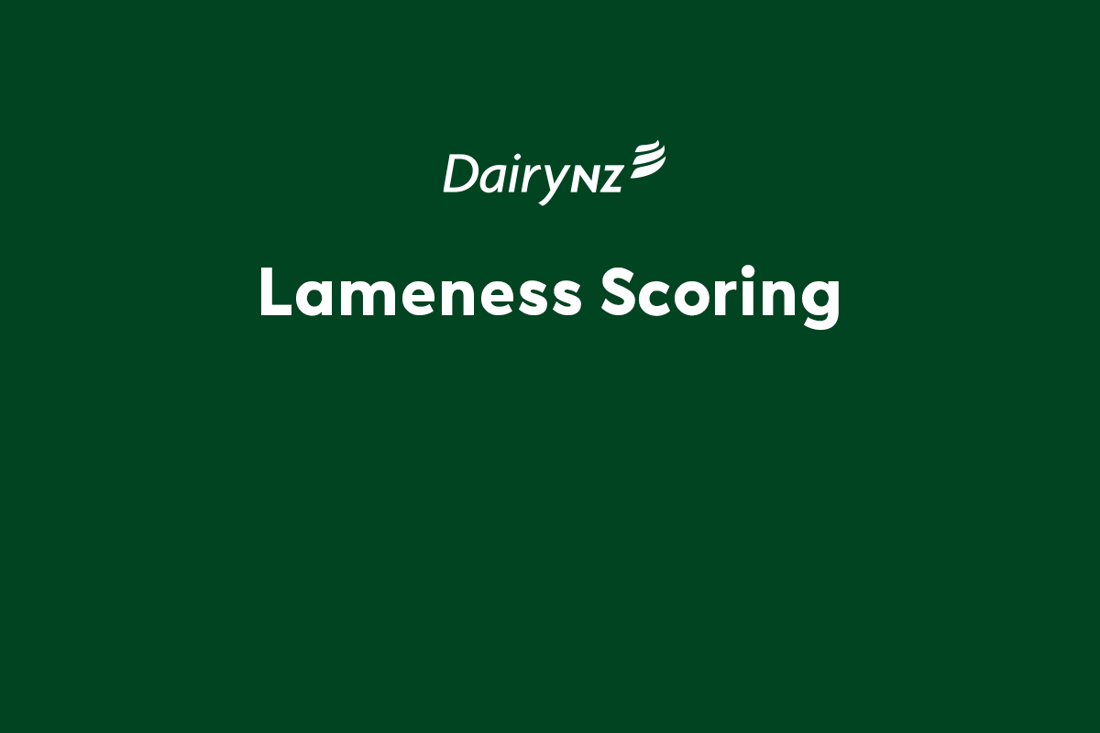Identifying lame cows
2 min read
Lameness is a cow health issue that requires timely detection and treatment. It affects the wellbeing of cows and people, taking time, energy and skill to treat. Lameness can pose a significant financial cost as lame cows produce less milk, lose weight, and take longer to get back in calf. The DairyNZ lameness scoring system helps you spot early signs and monitor cows over time.
In this episode of Talking Dairy, host Jac McGowan discusses lameness in dairy cows with veterinarian Winston Mason and DairyNZ’s Frank Portegys, exploring its causes, costs, and prevention strategies. They share insights on spotting early signs of lameness and why prompt action can greatly reduce its impact on farms.
A lame cow will adjust her gait and posture differently depending on the origin of the pain in the foot or the upper limb. Evaluating locomotion involves assessing the cow’s posture (e.g., back, shoulders, pelvis), movements (while rising and lying down when possible), and each limb and claw. Typically, gait evaluation can determine whether lameness is in the front or hind limb and, sometimes, whether it is in the upper limb. Once the affected limb has been identified, the cow should be properly restrained and the most likely foot inspected. You may need to check more than one foot to identify the exact cause of her lameness.
Lameness scoring can be used at a herd level to monitor lameness throughout the year. Carry out lameness scoring on flat, even surfaces when cows are walking at their own pace (e.g. leaving the milking shed to walk back to the paddock). As a prey species, cows hide pain, so early signs of lameness are subtle. Early identification and treatment is key to rapid recovery and minimising the impact on welfare and productivity. Having everyone on farm trained in lameness identification improves early detection. Get a trained professional to lameness score your herd and help train your staff.
Once the lameness is identified, trim and treat cows promptly. Find out more about treating lameness.

The DairyNZ lameness scoring system rates cows on a scale of 0 (no lameness) to 3 (very lame) and provides recommended actions based on the score. When observing cows, choose a flat area where cows can walk freely. This will ensure better accuracy when using the scoring system. Record every lame cow so you know what you are dealing with.
Fortnightly scoring is ideal, but checking half the herd at cups-off every two months is a great start, do what works for your system.
Technology such as cameras and wearables can also be used to detect lame cows. Depending on the technology you're using, it might identify a cow as lame using AI video analysis and score her from 0-3, or simply create a generic health alert that requires further investigation. Gait scoring cows with abnormal activity data can be a more efficient way of finding lame cows compared to whole-herd manual scoring.
No action required.

Minor action required. Record and keep an eye on her - some cows normally walk unevenly.

Action required. This cow is lame and needs to be reported, drafted and examined within 48 hours.

Urgent action required. This cow is very lame and needs urgent attention. Draft and examine as soon as possible within 24 hours. She may require a vet.

Now’s the perfect time to check in, plan, and set up for a strong season. We’ve pulled together smart tips and tools to help you stay ahead all winter long.
Whether you prefer to read, listen, or download handy guides, we’ve got you covered with trusted tools to support your journey every step of the way.
Put our proven strategies and seasonal tools to work. Boost production, support animal health and watch your profits hum.
Tools that are backed by science, shaped by farmers and made for this season.
That’s Summer Smarts.
Autumn Smarts brings together the research-backed tools that build resilience and boost performance.